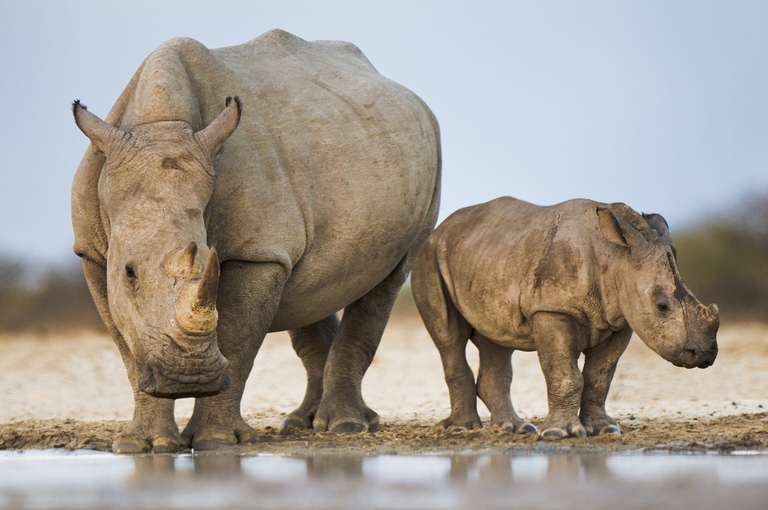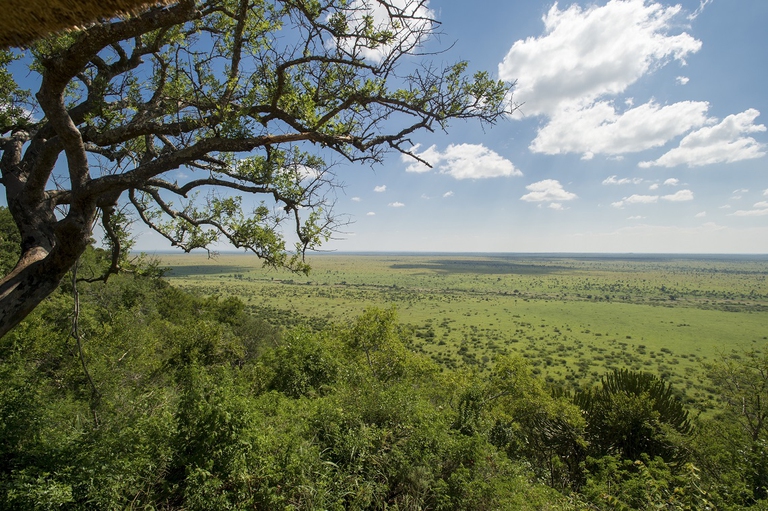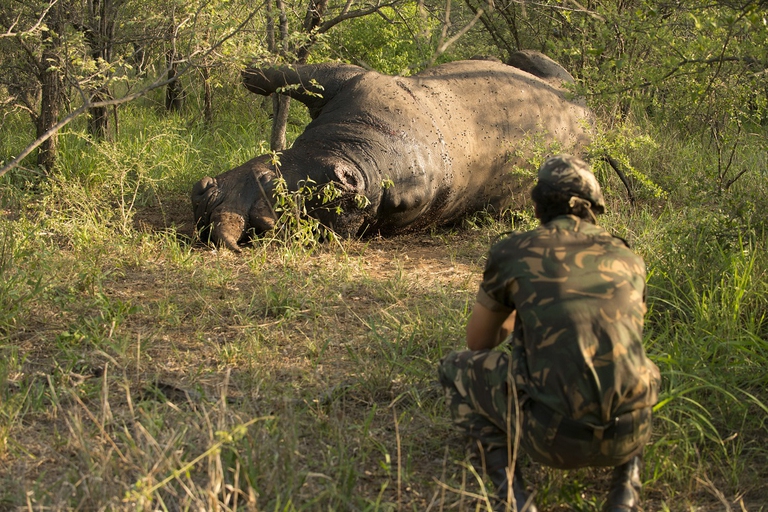
Our species took its first steps in a world covered in trees. Today, forests offer us sustenance, shelter, and clean the air that we breathe.
Nel Kruger National Park due cacciatori sono morti in uno scontro a fuoco con i ranger del parco.
Kruger National Park, South Africa, is an immense natural reserve home to Africa’s main terrestrial mammals, with the Savannah kept nearly untouched. The park is also home to the world’s largest population of rhinoceroses, fact that sadly turned this beatiful area into the scene of bloody clashes between poachers and rangers protecting wildlife.
Last week, two rhino poachers were killed by the park’s rangers in a gunfight. “There was a shoot-out and two of the three suspected poachers were fatally wounded,” said South African National Parks spokesman William Mabasa, whilst the third suspect escaped.
The high demand of rhino horns, mostly in Asia (where people think horns have therapeutic properties), made them reach a high economic value and pushed many people to follow the path of poaching. Poachers operating in Kruger Park mostly come from Mozambique, one of the world’s poorest countries. Over the past 5 years, Kruger National Park’s rangers have killed about 500 Mozambican poachers.
Poachers are often equipped with heavy weapons, including machine guns, but rangers are allowed to open fire. Despite protection, South Africa is battling a dramatic rhino poaching crisis that could cause the species extinction. Over 1,020 rhinoceroses have been killed in South African parks in 2014 alone, 700 of which in Kruger Park.
Rhino slaughters led the government to strengthen the park supervision – currently 4,000 rangers patrol Kruger Park – and to adopt countermeasures, including the preventive cut of rhinos’ horn or move the animals to more safety areas.
Siamo anche su WhatsApp. Segui il canale ufficiale LifeGate per restare aggiornata, aggiornato sulle ultime notizie e sulle nostre attività.
![]()
Quest'opera è distribuita con Licenza Creative Commons Attribuzione - Non commerciale - Non opere derivate 4.0 Internazionale.
Our species took its first steps in a world covered in trees. Today, forests offer us sustenance, shelter, and clean the air that we breathe.
Poachers in Africa are encroaching on wildlife land and killing rhinos in travel hot spots now devoid of visitors due to the coronavirus pandemic.
Actor and environmental activist Leonardo DiCaprio has contributed two million dollars to a fund to protect Virunga National Park in Congo from threats such as terrorism, the coronavirus and poaching.
For the first time in seventeen years, Iceland’s two main whaling companies won’t resume whale hunting. The announcement concerns this year’s season but could carry into the future.
The relationship between the coronavirus and wildlife is complex: while the pandemic may lead to a reduction in the illegal trade in wild animals, it may also encourage it in other respects.
The largest coral reef in the world is severely threatened by climate change, but researchers are developing strategies that could contribute to saving the Great Barrier Reef.
NGO Free the Bears has opened a mountain sanctuary for moon bears in Laos. With the government’s help, it aims to close all bile farms by 2022.
Seychelles have extended its marine protected area, which now covers over 400,000 square kilometres, an area larger than Germany.
The tapir was reintroduced into Brazil’s Atlantic Forest, the country’s most at-risk ecosystem. The species can play a key role in the forest’s recovery.










